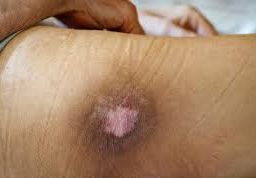
The Role of Diet in PCOS Management: Foods to Eat and Avoid
Polycystic Ovary Syndrome (PCOS) affects many women globally, creating hormonal imbalances and challenges in daily life. Managing PCOS involves various strategies, and one key aspect is adopting a well-rounded nutrition plan. In this guide, we’ll delve into effective PCOS management through dietary adjustments, focusing on key elements such as insulin resistance, healthy fats, and essential micronutrients. By understanding the role of nutrition, you can take proactive steps towards alleviating PCOS symptoms and improving overall well-being.

Polycystic Ovary Syndrome is characterized by imbalances in sex hormones, insulin resistance, irregular periods, excess androgen levels, and the formation of cysts on the ovaries. While there is no cure for PCOS, managing its symptoms is possible through various lifestyle changes, including dietary modifications. Nutrition can play a crucial role in managing symptoms and improving overall health. In this post, we will explore how adapting your diet can help control PCOS symptoms and improve your overall well-being.
The Role of Insulin
Insulin resistance is a common feature of PCOS, where the body’s cells become less responsive to insulin, leading to elevated blood sugar levels. This can result in weight gain, increased hunger, and difficulty losing weight. To combat insulin resistance, it is crucial to focus on foods that have a low glycemic index (GI). These foods release glucose slowly into the bloodstream, preventing sudden spikes in blood sugar levels. Opt for whole grains, legumes, fruits, and vegetables instead of refined carbohydrates and sugary snacks. Additionally, including protein-rich foods like lean meats, fish, eggs, and tofu in your meals can help stabilize blood sugar levels and keep you feeling full for longer.
Here are some dietary recommendations that may help control PCOS symptoms:
1. Low Glycemic Index (GI) Foods: Consuming foods with a low GI can help regulate blood sugar levels and reduce insulin resistance, which is commonly associated with PCOS. Choose whole grains, legumes, fruits, and vegetables instead of refined carbohydrates and sugary foods.
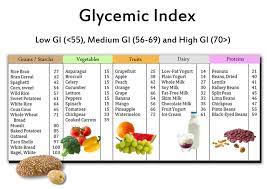
2. Balanced Macronutrients: Aim for a balanced diet that includes adequate protein, healthy fats, and complex carbohydrates. Including protein in each meal can help maintain stable blood sugar levels and promote satiety, which may be helpful for weight management.
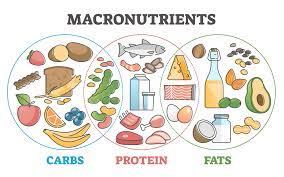
3. Healthy Fats: Consuming healthy fats is essential for hormonal balance in women with PCOS. Omega-3 fatty acids, found in fatty fish like salmon and sardines, as well as flaxseeds and walnuts, have been shown to reduce inflammation and regulate menstrual cycles. Including these foods in your diet can help alleviate PCOS symptoms. Moreover, monounsaturated fats found in avocados, olive oil, and nuts can also aid in hormone regulation. However, it is important to consume fats in moderation as they are high in calories. Focus on incorporating healthy fats like those found in avocados, nuts, seeds, and olive oil. These fats can help improve insulin sensitivity and support hormonal balance.
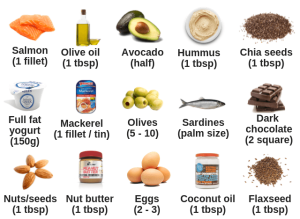
4. Fiber-Rich Foods: Fiber plays a crucial role in managing PCOS symptoms. It helps regulate blood sugar levels, promotes healthy digestion, and aids in weight management. Including high-fiber foods such as whole grains, fruits, vegetables, and legumes in your diet can aid in digestion, help regulate blood sugar levels and promote a feeling of fullness. It can also help control insulin levels and reduce the risk of developing type 2 diabetes. Additionally, fiber-rich foods keep you feeling full for longer, preventing overeating and promoting weight loss. Aim for at least 25-30 grams of fiber per day to reap the benefits.
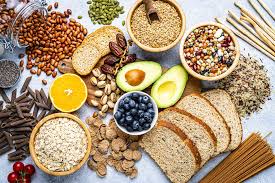
5. Limit Processed Foods and Sugars: Reduce or eliminate processed foods, sugary snacks, and sweetened beverages, as they can contribute to insulin resistance and weight gain.

6. Omega-3 Fatty Acids: Include sources of omega-3 fatty acids, such as fatty fish (salmon, mackerel, sardines), chia seeds, and flaxseeds. Omega-3s have anti-inflammatory properties and may help manage PCOS-related inflammation.

7. Calcium and Vitamin D: Adequate calcium and vitamin D intake are important for bone health. Dairy products, fortified plant-based milk, and leafy greens are good sources.
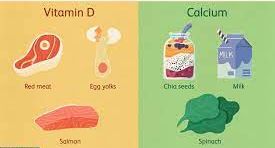
8. Magnesium: Magnesium-rich foods, like spinach, nuts, and whole grains, may help with insulin sensitivity.
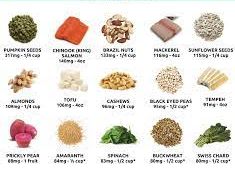
9. Caffeine and Alcohol: Limit caffeine and alcohol consumption, as they can interfere with hormone regulation and may exacerbate PCOS symptoms.

10. Stay Hydrated: Drink plenty of water throughout the day to support overall health and proper bodily functions.
Remember that individual responses to dietary changes may vary, and it’s essential to work with a registered dietitian or healthcare professional who specializes in PCOS to develop a personalized nutrition plan. They can assess your specific needs, lifestyle, and health goals to create the most effective approach for managing PCOS symptoms through diet. Additionally, maintaining regular physical activity and managing stress can also contribute to the overall management of PCOS.

11. Micronutrients for PCOS Management:
Certain micronutrients have been found to be beneficial for women with PCOS. Chromium, a mineral that enhances insulin sensitivity, can be obtained from broccoli, green beans, and whole grains. Magnesium, found in spinach, almonds, and dark chocolate, has been shown to improve insulin resistance and reduce inflammation. Furthermore, vitamin D deficiency is common in women with PCOS and has been linked to insulin resistance and hormonal imbalances. Including fatty fish, fortified dairy products, and spending time in the sun can help increase vitamin D levels. Consulting with a healthcare professional or registered dietitian can help determine if supplementation is necessary.
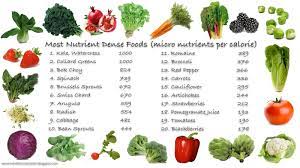
While PCOS can be challenging to manage, making dietary changes can significantly improve symptoms and overall well-being. By focusing on low glycemic index foods, consuming healthy fats in moderation, incorporating fiber-rich foods, and ensuring adequate intake of essential micronutrients, you can take control of your PCOS symptoms. Remember to consult with a healthcare professional or registered dietitian to create a personalized diet plan that suits your specific needs. With commitment and perseverance, you can adapt your diet to better manage PCOS and lead a healthier life.
Disclaimer: The information provided in this content is for general informational purposes only. It is not intended as medical or healthcare advice, diagnosis, or treatment. Always seek the advice of a qualified healthcare professional with any questions you may have regarding a medical condition or healthcare decisions.
















